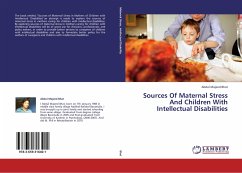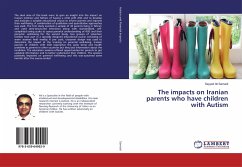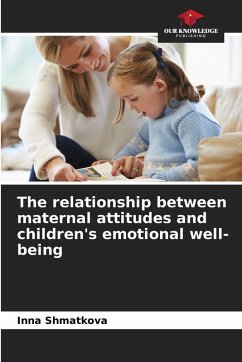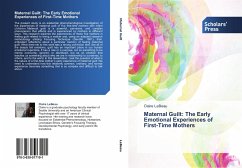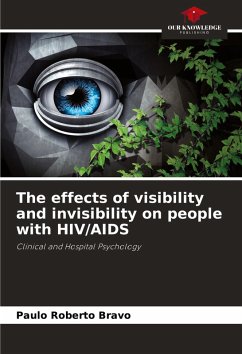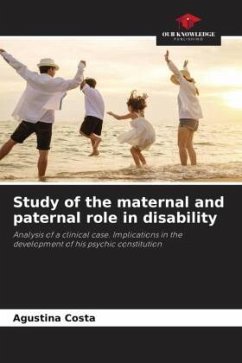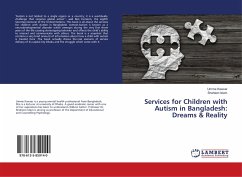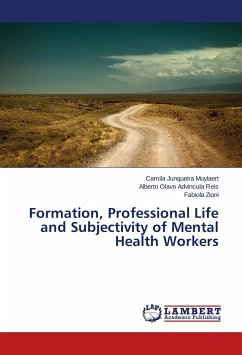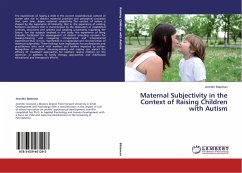
Maternal Subjectivity in the Context of Raising Children with Autism
Versandkostenfrei!
Versandfertig in 6-10 Tagen
47,99 €
inkl. MwSt.

PAYBACK Punkte
24 °P sammeln!
The experiences of raising a child in the current sociohistorical context of autism give rise to distinct maternal practices and perceptual processes that, over time, shape maternal subjectivity. The context of autism is shaped by the experience of liminality, that is, the experience of existing between conditions that is characterized by the dislocation of established contexts, structures and systems and ongoing uncertainty regarding the future. For the subjects involved in this study, the experience of living liminality facilitated the development of distinct orienting contexts for making-me...
The experiences of raising a child in the current sociohistorical context of autism give rise to distinct maternal practices and perceptual processes that, over time, shape maternal subjectivity. The context of autism is shaped by the experience of liminality, that is, the experience of existing between conditions that is characterized by the dislocation of established contexts, structures and systems and ongoing uncertainty regarding the future. For the subjects involved in this study, the experience of living liminality facilitated the development of distinct orienting contexts for making-meaning and navigating intrapersonal and interpersonal experiences that, in turn, manifested in a reappraisal and reconstruction of maternal subjectivity. These findings have implications for professionals and practitioners who work with mothers and families impacted by autism. Recognition of mothers' meaning-making and coping can impact the efficacy of treatment approaches for mothers raisingchildren on the spectrum, in addition to family therapy approaches, and child-based educational and therapeutic efforts.



